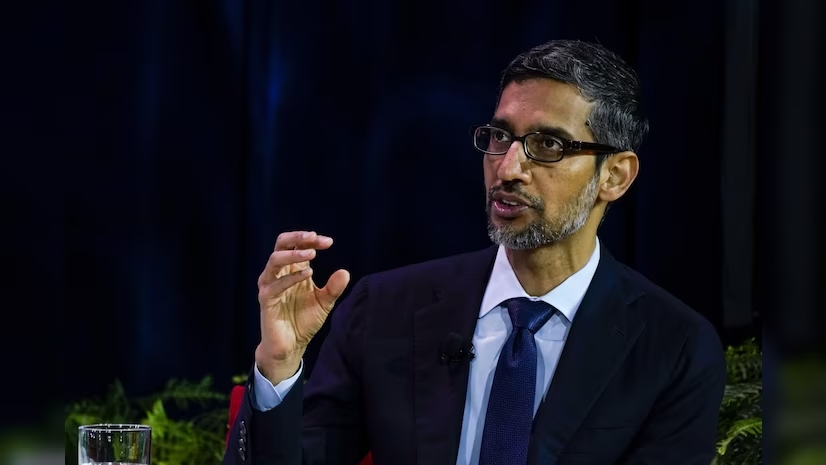In a revealing twist in the ongoing Justice Department’s antitrust case against Alphabet Inc.’s Google, emails from 2007 have emerged, featuring concerns raised by Google’s current CEO Sundar Pichai about the company’s deal with Apple Inc.

The emails, submitted as evidence in the case, showcase Pichai’s apprehensions about the lack of choice for users in selecting a search engine in Apple’s Safari browser. At the time of the emails, Pichai was overseeing Google’s Chrome browser, and he expressed discomfort with the agreement to pay Apple for being the pre-selected search option. “I know we are insisting on default, but at the same time I think we should encourage them to have Yahoo as a choice in the pull-down or some other easy option,” Pichai wrote.
The crux of the Justice Department’s case is the allegation that Google has been paying substantial amounts to Apple and other smartphone makers, including Samsung, in revenue-sharing agreements to stifle competition from rival search engines. The agreements ensure that Google remains the default search option on browsers and smartphones.
The Justice Department claims that Google pays over $10 billion annually for these contracts, though the exact figures are confidential. Google, however, denies that these agreements impede competition, asserting that users can easily opt for alternatives.
Key negotiator Joan Braddi, Google’s vice president for product partnerships, testified on Tuesday about the agreement with Apple. During questioning, the prosecutor raised concerns about the benefits of Google search compared to the cost of supporting Apple, its major competitor in mobile operating systems. Braddi, who negotiated the initial deal in 2002, stated that the agreement between Google and Apple had no limits on how Apple utilized the money received.
The 2002 deal, which started without any monetary exchange, evolved into a revenue-sharing arrangement in 2005. It subsequently expanded to include the iPhone in 2007 and the iPad in 2010. Braddi disclosed that amendments were proposed by Apple in 2007, 2009, and 2012, seeking more flexibility on the search default. In 2014, an amendment was signed allowing Apple to use other search engines in some countries.
Also Read: US Space Force Pauses Generative AI Use Based on Security Concerns
Interestingly, the 2014 amendment took 17 months to negotiate, emphasizing concerns about potential diversions of queries to other companies. Braddi clarified that the intention was not to obstruct Apple’s services but to ensure that the search engine was used in a “substantially similar” manner.
As the case unfolds, questions linger about the financial impact of the revenue-sharing on Apple’s operating income. Google has been monitoring Apple’s earnings calls since 2018 to gauge the significance of the revenue share, but exact figures remain undisclosed. The trial continues, shedding light on the intricacies of these behind-the-scenes dealings between tech giants.

I am a law graduate from NLU Lucknow. I have a flair for creative writing and hence in my free time work as a freelance content writer.